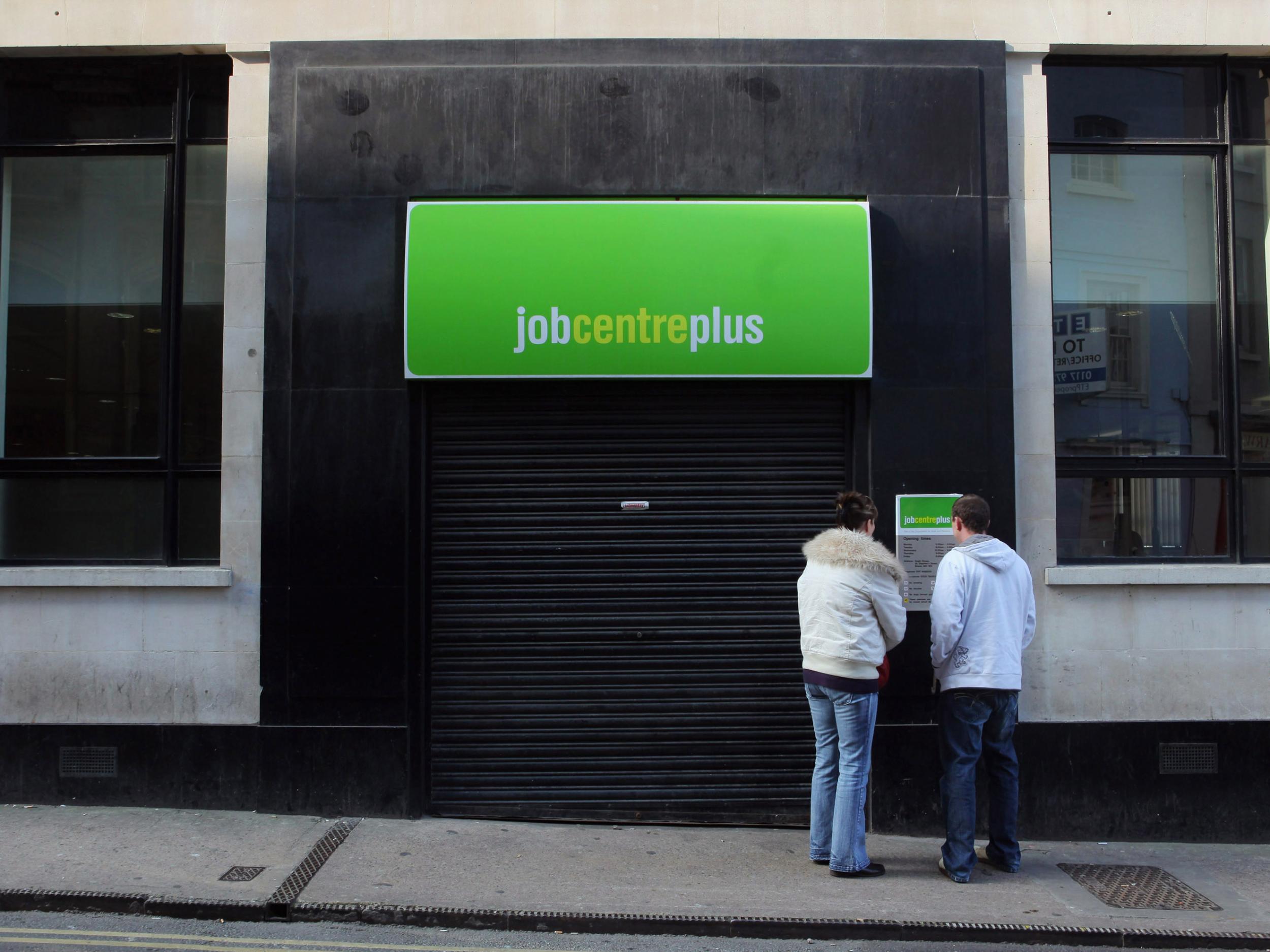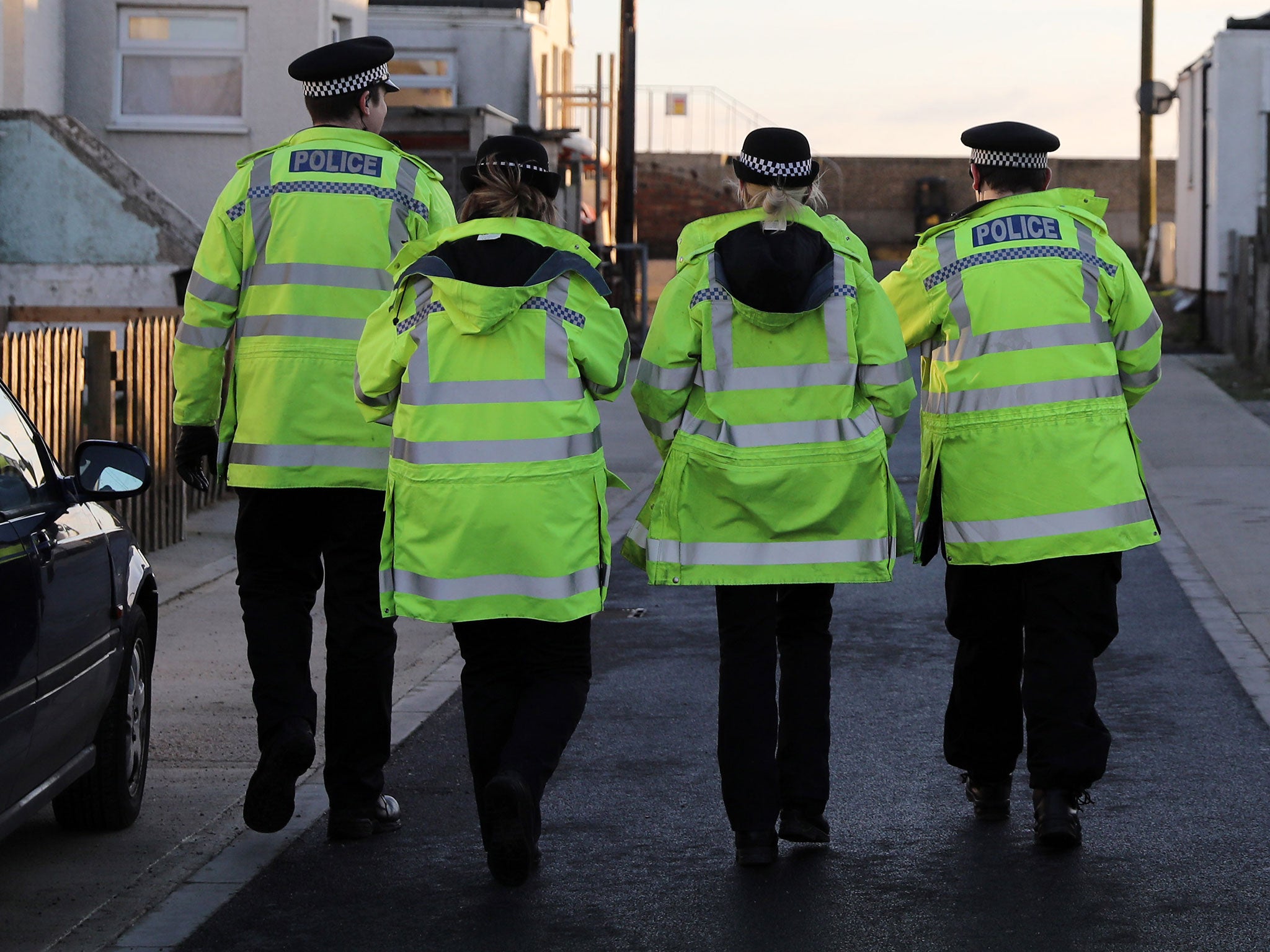Austerity has eliminated our budget deficit – but at what cost?
The Conservative government’s budget cuts since 2010 have left vulnerable people and vital services at breaking point

Could it be that the recent rise in knife crime is an unwelcome consequence of the austerity policy launched by the Conservative government as long ago as 2010?
Up to the end of April there were some 1,296 stabbings in London, according to official statistics from the Metropolitan Police.
A first glance, the relationship between knife crime and austerity appears far-fetched. But there is evidence to consider – what has been happening to the relevant public services.
Let us start with the front line. London’s mayor, Sadiq Khan, said recently that 2018 could turn out to be “the bloodiest year in the capital for more than a decade” because of escalating gun and knife crime.
And referring to police numbers he added that there were now fewer than 30,000 officers on the streets for the first time since 2003.
In fact, the year that the Conservative Party returned to power, 2010, turned out to be the peak for police numbers. Since then, according to the House of Commons Library, the total has fallen each year.
Cressida Dick, the Metropolitan police commissioner, admitting to the Home Affairs Committee recently that serious violence in London was “too high”, added: “I would be naive to suggest that reduced numbers of officers on the street, for a whole variety of reasons, including – and I’m talking across the country here – reduced officer numbers overall, has had no impact.” This is plainly a consequence of the Conservative policy of austerity, pure and simple.

Youth work services are also being cut back. Local authorities have warned that government funding cuts have served to undermine years of work by local authorities in tackling youth crime.
In 2010-11, Whitehall funding for youth offending teams stood at £145m. By 2017-18 that amount had been slashed to £72m, even though the evidence is that such work has been effective at preventing young people from getting involved in crime.
Youth workers and other practitioners have told The Independent that financial pressures on parents to work long hours and cuts to vital youth support programmes are leaving teenagers in a “vulnerable place”. This causes some of them to turn to a life of crime, they said.
At first glance, the relationship between knife crime and austerity appears far-fetched. But there is evidence to consider – what has been happening to the relevant public services
In another consequence of austerity, local authorities have said they are “deeply concerned” that funding cuts are making it even more difficult to place children with special educational needs and disabilities (SEND) in schools.
A letter – signed by 39 local authorities and education unions – calls for councils and schools to be given more money to make sure that children with SEND get the support they need. “We urge the government to act quickly on this matter,” the letter, which is addressed to the education secretary Damian Hinds, asserts.
Austerity has also had a negative impact on homelessness. The vast majority of councils and housing associations believe government welfare policy is hitting their efforts to tackle homelessness, according to new research.
The findings, from the Chartered Institute of Housing and the University of Sheffield, reveal 84 per cent of the 106 councils and 70 per cent of the 50 housing associations (which run 39 per cent of the total housing association stock in England) surveyed, think welfare policies like the lower benefit cap are impacting negatively on their work together to tackle homelessness.
Homelessness means frustration and despair for families. And out of this combination of sentiments, violent behaviour can be the result.
Now a further issue arises. Were these cuts in welfare services an unwelcome and unforeseen consequence of government policy, or were they deliberate? To answer that question, bear in mind the analysis by Paul Krugman, the Nobel Prize-winning economist and New York Times columnist.

He has written that “demands for austerity serve a political agenda, with panic over the alleged risks of deficits providing an excuse for cuts in social spending”. Now as this seems like a handy history of the Conservative government’s economic policy since 2010, it’s worth going back to have a look.
As originally conceived, austerity was a response to the financial crisis of 2008. Never forget that this alarming event was purely the result of reckless lending by major banks on both sides of the Atlantic. The banks believed they had found a magic money-making system.
Homelessness means frustration and despair for families. And out of this combination of sentiments, violent behaviour can be the result
You issued mortgages at high rates to borrowers with poor credit ratings (hence subprime), then bundled these mortgages together, which lowered the risk, and sold these packages in the financial markets for a good price.
Hey presto! Except that when house prices began to fall, the mortgage securities lost value and the banks began to fear insolvency, so they stopped lending to each other and their customers. The financial crisis was upon us and matters got rapidly worse.
Governments bailed out their banks, which resulted in a big expansion of public debt. Then a new question arose: were even government loans safe? This is what persuaded governments to turn to austerity policies.
The argument was that if financial markets could see that governments were taking painful decisions with regard to their own spending, then they would be impressed and be willing to continue buying government loans. So, the coalition government pursued an austerity policy.
The then chancellor of the exchequer, George Osborne, said that the coalition government had inherited from its predecessor “the largest budget deficit of any economy in Europe with the single exception of Ireland”.
One pound in every four we spend “is being borrowed”. What we have not inherited from our predecessor is “a credible plan to reduce their record deficit”.
What a wonderful opportunity for a Conservative government. Blame your opponents for the budget deficit and then attack their prized welfare programmes in order to reduce it.

Thus Osborne went on to state that the coalition government believed that the bulk of the reduction must come from lower spending rather than higher taxes. “The country has overspent; it has not been under-taxed.”
The National Health Service and international aid obligations would be protected. As a result, Osborne’s budget figures implied that other departments (ie not the NHS) would face an average real cut of around 25 per cent over four years.
And, it is important to note, “other departments” in effect included local authorities, which provide the services mentioned above. Moreover, said Osborne, an explosion in welfare costs had contributed to the growing structural budget deficit.
Governments bailed out their banks, which resulted in a big expansion of public debt. Then a new question arose: were even government loans safe?
However, at the same time, something of even greater significance for the overall welfare of the population has been going on – to use “welfare” in its broader meaning. And it has been working in the opposite direction. Employment has been steadily expanding to the extent that the figures to end April 2018 show that the employment rate (the proportion of people aged 16 to 64 years who were in work) stood at 75.6 per cent, higher than a year earlier (74.8 per cent) and the joint highest since comparable records began in 1971.
Likewise, the inactivity rate (the proportion of people aged 16 to 64 years who were economically inactive) was 21 per cent, below that a year earlier and also at a record low point. The most people in work for nearly 50 years
There has been another pleasing development. Britain has eliminated the deficit on its day-to-day budget. The rapid improvement in the public finances over the past six months means that the former chancellor’s ambition for a surplus on the current budget, which excludes capital investment, has been met, albeit two years later than planned.
Paul Johnson, director of the Institute for Fiscal Studies, said the deficit reduction was “quite an achievement given how poor economic growth has been. They have stuck at it, but deficit reduction has come at the cost of an unprecedented squeeze in public spending”.
So what, finally, did we gain from austerity? A lower bill for interest on government borrowing than might otherwise have been the case had we racked up big budget deficits.
And a safety margin in the public finances which will be useful the next time that the economy moves into recession.
And who has provided these benefits for the rest of us? Fellow citizens who need a helping hand from the state and will find it isn’t there any longer.
Join our commenting forum
Join thought-provoking conversations, follow other Independent readers and see their replies
Comments
Bookmark popover
Removed from bookmarks